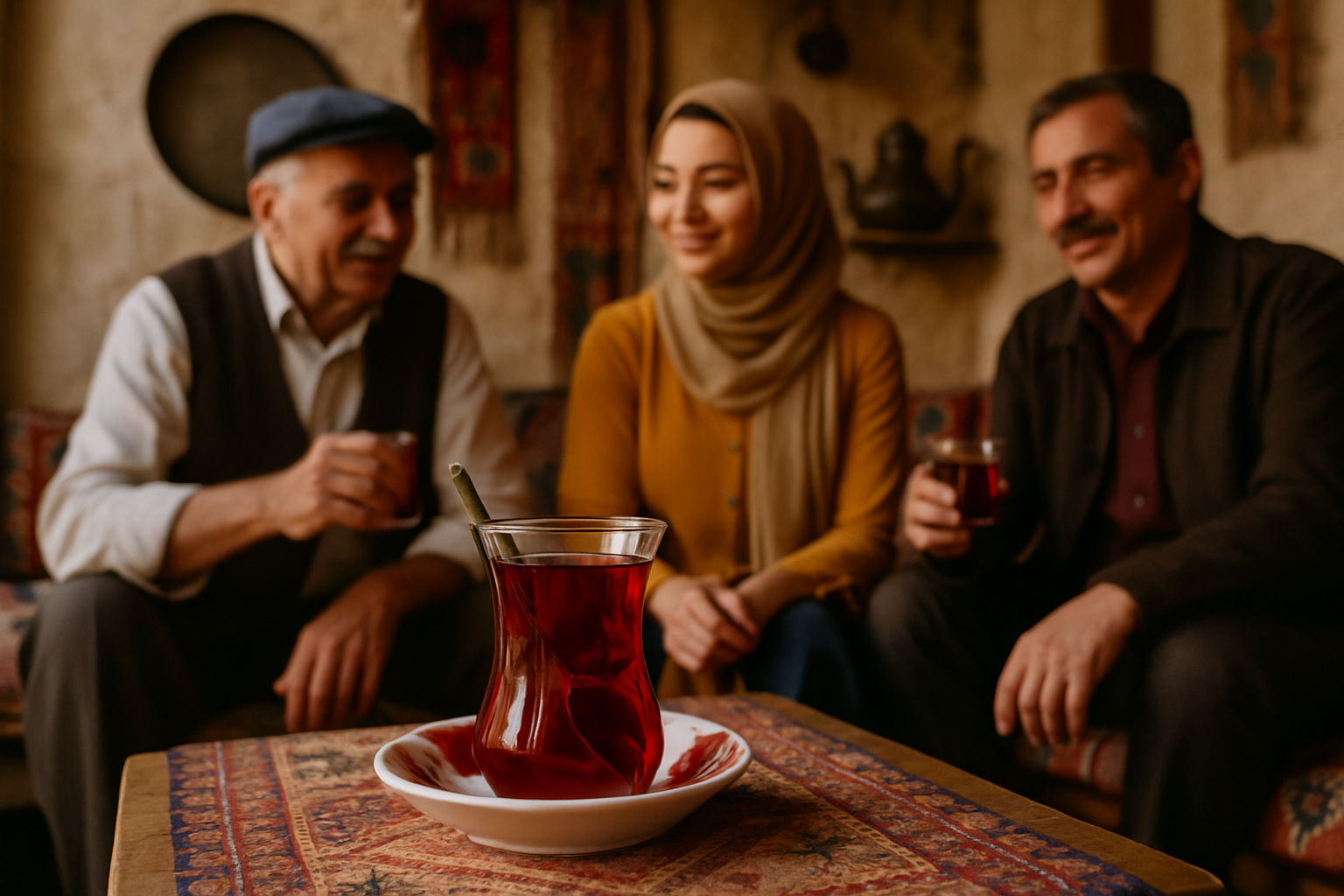The Significance of Tea in Turkish Society

Living as an expat in Turkey brings excitement and a unique set of challenges. One of these is integrating into the rich local culture, which is often woven into everyday routines. Among the many customs, the tradition of tea stands out as both a symbol of hospitality and a daily ritual. If you’re trying to build friendships, adapt to a new work environment, or simply feel at home faster, understanding the significance of tea in Turkish society can make your expat journey smoother and more rewarding.
The Heart of Turkish Hospitality
For many expats, the first encounter with Turkish tea happens immediately after arrival. Whether you’re visiting a bank, sitting in a taxi office, or being invited into someone’s home, an offer of tea is almost guaranteed. This is more than a drink; it’s the foundation of hospitality and social connection.
- Hosts prepare tea to show respect and care for guests.
- Saying yes to tea can open doors to conversation and trust.
- Refusing tea, especially repeatedly, may come across as distant or even rude.
Accepting tea creates a welcoming atmosphere. Use these moments to engage in small talk or observe local customs. These actions help expats quickly establish a sense of belonging.
Shared Moments: How Tea Builds Community
Tea in Turkey is rarely consumed alone. It’s a social glue that holds families, friends, and even business partners together. Parks, offices, homes, and bustling tea gardens known as “çay bahçesi” become gathering points, offering a window into Turkish daily life.
- Workplaces include planned tea breaks for employees to connect.
- Neighborhood tea houses become places to discuss news, play games, and nurture friendships.
- Tea brings all ages together, from elders to children.
Expats gain great benefits by participating in these gatherings. Join colleagues for tea at work or accept invitations from neighbors. These shared moments often lead to lasting relationships and a deeper sense of community.
The Art of Brewing and Serving Tea
The ritual around tea in Turkey is as important as the drink itself. Understanding the brewing process and etiquette helps expats feel more comfortable and gain respect among locals.
- Turkish tea is made using a double kettle called “çaydanlık.”
- Strong tea is poured first, then diluted with hot water based on preference (“açık” for light or “koyu” for strong).
- Small, tulip-shaped glasses keep the tea hot and highlight its color.
Offering tea at home may impress Turkish friends or neighbors who visit. Make an effort to learn the brewing technique. Even simple acts like asking how your guest prefers their tea can build rapport quickly.
Tea as a Cultural Bridge for Expats
Adapting to life in Turkey can feel overwhelming at times. Engaging with Turkish tea culture creates a natural bridge between expats and locals. As you gain more knowledge about tea rituals, you’ll notice how easy it becomes to start conversations and fit in.
- Asking about someone’s favorite tea shows genuine interest in local life.
- Learning common phrases: “Bir çay lütfen” (One tea, please) helps with daily interactions.
- Joining group tea gatherings eases language barriers and nurtures mutual understanding.
Many expats say the simple act of sharing tea has led to unexpected friendships, important business connections, and a sense of home away from home.
Tips for Embracing Tea Culture as an Expat
Embracing Turkish tea culture enriches your daily life in practical ways. Here’s how you can make the most of this tradition:
- Accept tea invitations whenever possible, especially in early days.
- Visit local “çay bahçesi” to practice your Turkish and meet new people.
- Invest in a simple double kettle and learn to brew tea at home.
- Offer tea to colleagues, neighbors, or service providers—it’s a friendly gesture.
- Explore different types of Turkish teas beyond black tea, like herbal infusions or apple tea.
These strategies allow you to experience local hospitality firsthand and integrate faster into Turkish society. Tea’s pivotal role in daily interactions offers consistent opportunities to bond with others, learn customs, and feel connected—turning cultural challenges into shared moments.
In short, the significance of tea in Turkey goes far beyond refreshment. It stands as a welcoming gesture, a community builder, and a daily ritual that span generations. For expats, embracing tea culture is not only practical but deeply rewarding, making each day in Turkey a little warmer and more connected.
